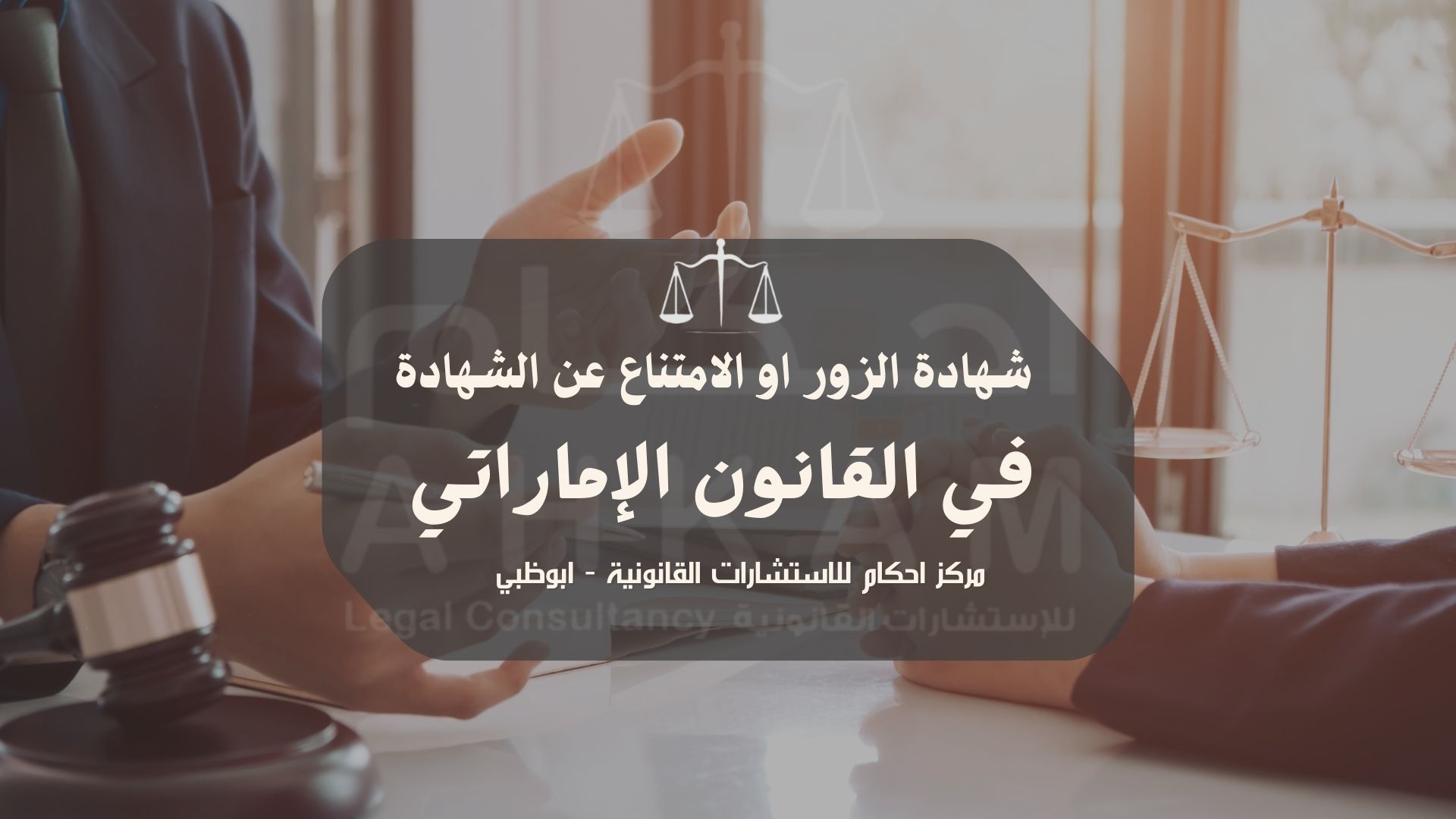False Testimony, Perjury, and Failure to Testify under UAE Law
Home / False Testimony, Perjury, and Failure to Testify under UAE LawFalse Testimony, Perjury, and Failure to Testify under UAE Law
What is the Definition of Perjury?
Perjury can be defined as the deliberate act of lying or providing false affirmation—either spoken or written—about a matter that is essential to judicial proceedings, after swearing to tell the truth. It involves the witness intentionally making false statements that may influence the outcome of the case.
In jurisprudence, perjury is considered the act of testifying falsely under oath in any legal matter—criminal, civil, commercial, or otherwise—where the witness knowingly lies in favor of or against one of the parties involved. It is recognized as a crime under the law, punishable by penalties for making false and misleading statements after swearing an oath to speak the truth.
From this, it is evident that perjury is classified as a result-based crime (a consummated crime), meaning that it requires a harmful outcome. This is evident from Article 302 of the UAE Penal Code, which implies that the notion of attempting perjury—whether successful or not—is not recognized in legal terms.
Legal Provisions Concerning the Crime of Perjury
Under Article 302 of the UAE Penal Code:
Anyone who provides false testimony before a judicial authority or a body authorized to hear witnesses—after taking an oath—by denying the truth or concealing all or part of what they know regarding the facts of the case, whether the testimony is ultimately accepted or not, shall be punished by imprisonment for no less than three (3) months.
If the perjury occurs during the investigation or trial of a felony, the punishment escalates to temporary imprisonment. If the false testimony leads to a sentence of death or life imprisonment, the same penalty shall be imposed on the witness who gave the false testimony.
Elements of the Crime of Perjury
Like other crimes, perjury requires specific components, in addition to the legal foundation provided by Article 302. These include:
1. Material Element
This consists of three components:
– Giving testimony before the judiciary in any case—civil, criminal, or otherwise.
– Lying under oath and persisting in that lie.
– The actual or potential occurrence of harm.
Importantly, the law does not consider mere lying as sufficient; the lie must be intentional and malicious. However, if a witness recants their false statement before the conclusion of the investigation or before a final judgment is rendered, they may be exempt from liability.
Additionally, actual harm to a party is not necessary to establish this element; misleading the judiciary is sufficient to fulfill the element of harm.
2. Moral Element (Intent)
Perjury is an intentional crime. The offender must have knowingly and willfully lied or concealed the truth. According to the Court of Cassation, criminal intent is essential in such cases.
If a witness errs due to faulty memory or misperception, they are not considered criminally liable. Punishable perjury must be a deliberate falsehood.
Penalties for Perjury
As outlined in Article 302, perjury is punishable by:
– A minimum of three (3) months’ imprisonment.
– Temporary imprisonment if committed during a felony investigation or trial.
– The same punishment as the resulting sentence (e.g., death or life imprisonment) if perjury contributes to such an outcome.
Other relevant articles include:
Article 306:
Experts, translators, or investigators appointed by judicial or administrative authorities who knowingly provide false or misleading reports are punishable by imprisonment of one (1) to five (5) years. If the case concerns a felony, temporary imprisonment applies. These individuals may also be barred from holding similar roles in the future.
Article 307:
Doctors or midwives who accept or solicit any advantage in exchange for making false claims about pregnancy, birth, illness, disability, or death may face up to five (5) years’ imprisonment.
Mitigating Circumstances
If perjury is committed without an oath being administered, the testimony may still be deemed false, but the blame may shift to the court for procedural oversight (e.g., failure to swear in the witness). In such cases, the legal implications may be less severe.
Exemptions from Punishment
Article 304 outlines cases where witnesses are exempt from punishment:
1. If telling the truth would subject the witness or a close relative (including spouse, even if divorced, or relatives up to the second degree) to significant harm.
2. If the witness voluntarily discloses their identity without being compelled to testify or warned of their right to abstain.
However, if the false testimony leads to legal prosecution or judgment against another individual, the witness shall be imprisoned for no less than six (6) months.
Incitement to Perjury
Article 305 provides that:
Anyone who incites another to commit perjury shall be punished with a penalty reduced by half, provided the motive was to avoid harm similar to the conditions described in Article 304.
Final Note
These legal provisions must be interpreted by qualified legal professionals. Our legal center provides highly experienced consultants capable of preparing legal memoranda and advising on all legal matters.
For inquiries regarding UAE law, contact Ahkam Transaction and Legal Consultancy, home to a team of top-tier legal advisors across various legal disciplines.
Legal Consultant:
Ismail Al-Masri
Ahkam Transaction and Legal Consultancy
